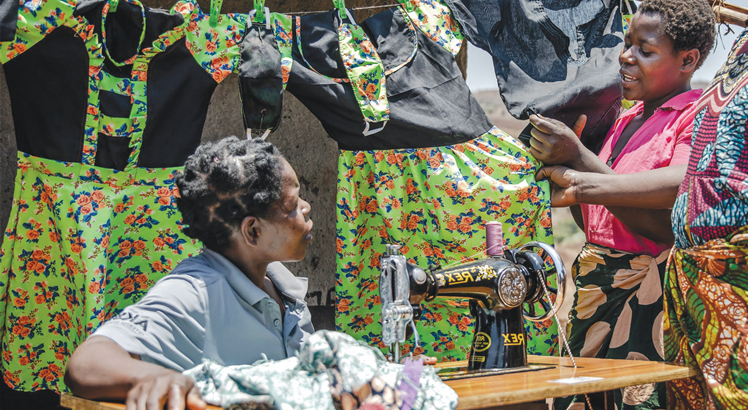Empowering fistula survivors
Although Marita Vula was in pain, she tried as much as possible to ignore it. The 28-year-old woman was experiencing her first labour pains. Vula had waited for this moment and couldn’t wait to be a mother.
“When I got married, I stayed for three years without a child,” says Vula, from Kambola Village in Ntchisi. “In our culture, one is expected to have a child as soon as they get married.”
Try as they could, Vula could not get pregnant. This displeased her in-laws who wanted grandchildren.
One day, her husband was tending their maize field. When he heard the news that her wife was in labour, he hurried back home. Since the hospital was too far, he took Marita to a traditional birth attendant to help her deliver.

“That was the only option we had that time,” recalls Vula, adding, “I didn’t see the labour coming that soon and hadn’t planned to travel to the hospital.”
Challenges persist
For hours, the traditional birth attendant tried to help Vula to deliver but without luck. In desperation, the traditional birth attendant prepared some herbs to help “push the baby out”. Instead, the herbs made her lose a lot of blood.
“My husband became worried and he rushed to the nearby village to hire a car,” she said. “When he came back, I had passed out. The next thing I remember was in a hospital. The look on my husband’s face told me that something terrible had happened.”
Vula arrived at the hospital semi-conscious. Medical staff had to perform a caesarean section to save both mother and child. Unfortunately, the child didn’t make it.
“This was devastating news. I was looking forward to holding my child in my hands,” she says.
Although Vula recovered well, she could no longer control her urine and she kept wetting herself. The prolonged labour caused her to develop a hole—obstetric fistula—between the birth canal and the bladder.
“When I returned home, my husband’s attitude towards me changed,” she says. “He started sleeping in his own bed.”
A ray of hope
For eight months, nothing changed. Eventually, her husband disappeared only for Marita to learn that he had married in another village.
“I was okay with him sleeping on another bed,” she says. “But running away from me was the last thing I expected from him. He was responsible for the pregnancy and I wouldn’t have developed a fistula if it wasn’t for him.”
With time, Vula learnt to accept her condition. One day, as she was listening to the radio, she heard a testimony of a woman successfully treated for fistula. She learnt that the operation was done at Bwaila Fistula Centre in Lilongwe.
Vula saved money for transport to seek treatment at the centre. The waiting list was long and she stayed at the centre for a month to get fistula repair.
Reintegrating fistula survivors
“The support I received from the fistula centre transformed my life,” says Vula, who is now a fistula ambassador in her community. “I have moved from being a social outcast to become one of the community’s respected tailors.”
To help her reintegrate in her community, Bwaila Fistula Centre, with support from the Spotlight Initiative funded by the European Union, trained Marita and 48 other fistula ambassadors in tailoring. Each received a sewing machine to help them establish a tailoring shop for income generation.
Today, Vula fashions dresses, suits and all types of uniforms.
“I am saving money to buy iron sheets for my house,” she says. “I have lived a difficult life and now I just want to make the best of what I have.”
In 2021, UNFPA successfully lobbied for the reopening of the Bwaila Fistula Centre after it was converted into a Covid-19 isolation centre.
The closing of the centre inconvenienced hundreds of women suffering from fistula from getting treatment. Since reopening, the centre, with support from the Spotlight Initiative, has successfully assisted 90 women suffering from fistula





